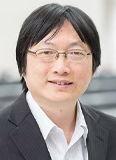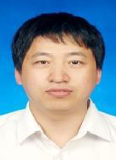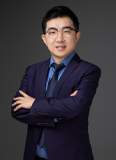
Speakers

Prof. Jinhua She
Tokyo University of Technology, Japan
IEEE Fellow
Biography:
Jinhua She (Fellow, IEEE) received the B.S. degree in engineering from the Central South University, Changsha, China, in 1983, and the M.S. and Ph.D. degrees in engineering from Tokyo Institute of Technology, Tokyo, Japan, in 1990 and 1993, respectively.,In 1993, he joined the School of Engineering, Tokyo University of Technology, Hachioji, Japan, where he is currently a Professor. His research interests include the application of control theory, repetitive control, process control, Internet-based engineering education, and assistive robotics.,Dr. She is a member of the Society of Instrument and Control Engineers (SICE), the Institute of Electrical Engineers of Japan (IEEJ), Japan Society of Mechanical Engineers (JSME), Architectural Institute of Japan (AIJ), and the Asian Control Association (ACA). He received the Control Engineering Practice Paper Prize by the International Federation of Automatic Control (IFAC) in 1999 (jointly with M. Wu and M. Nakano).

Prof. Hongchen Liu
Harbin Institute of Technology, China
Biography:
Hongchen Liu, male, professor and doctoral supervisor, Heilongjiang Province Teaching Master, IEEE Senior Member, Associate Editor of IEEE Access journal, recipient of Baosteel Outstanding Teacher Award and Heilongjiang Province May 1st Labor Medal. He has hosted and participated in multiple projects including the National Key R&D Program, National Natural Science Foundation, Ministry of Education Doctoral Fund, China Postdoctoral Fund, Heilongjiang Province Postdoctoral Fund, Harbin Institute of Technology University Fund, National 863 Program, 973 Program, Ministry of Science and Technology’s Russia cooperation projects, and key scientific and technological projects of Harbin City. He has published over 80 papers, more than 40 of which are indexed by SCI, with many appearing in top domestic and international journals, and holds 13 authorized patents.

Prof. Yu Wang
Chongqing University, China
Biography:
Yu Wang, professor and doctoral supervisor, selected for the National Young Talent Program and recognized as a "Hongshen Distinguished Scholar" by Chongqing University, IEEE Senior Member; key member of the Power Transmission and Transformation Equipment Technology National Key Laboratory and the Power and Energy Reliability Team. He obtained his Ph.D. and Master's degrees from Nanyang Technological University, Singapore, and his Bachelor's degree from Wuhan University. He has served as a Marie Curie Research Fellow at Imperial College London and as a Research Scientist at the Nanyang Technological University–Rolls-Royce Collaborative Laboratory. He is an editorial board member of domestic and international journals including the Journal of Modern Power Systems and Clean Energy, IET Generation, Transmission & Distribution, and IET Renewable Power Generation. He also holds positions such as Secretary of the IEEE PES Energy Internet Coordination Committee Working Group, member of the New Energy and Energy Storage Systems Committee of the Chinese Association of Automation, member of the Intelligent Microgrid Committee of the Chinese Energy Society, and working group member of the International Conference on Electricity Distribution (CIRED). Wang Yu has led scientific research projects funded by the Singapore Defense Science and Technology Agency, the State Grid Corporation of China, and Chongqing municipal special funds, completing developments in smart microgrid control, power system stability analysis, and grid energy storage system control. In the fields of smart grids and microgrids, he has published over 100 SCI/EI indexed papers, including more than 40 papers in IEEE Transactions journals, 5 ESI highly cited papers, and has authored one English monograph. His papers have been cited over 4,000 times, and he is recognized as one of the Stanford Global Top 2% Scientists and a Web of Science Top 1% Highly Cited Researcher.